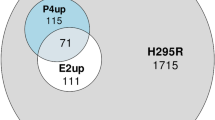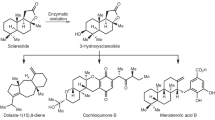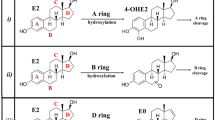Abstract
IT is perhaps ungrateful to take exception even in part to so appreciative a note as that on “The Male Sex Hormone” which appeared in NATURE of October 13 (p. 563). However, it contains the following sentence: “It is unfortunate that this conversion of cholesterol into androsterone should be described as a synthesis.” Now, the elimination of water from ethyl alcohol is designated as a synthesis of ethylene, and the pyrogenetie decomposition of dipentene is a synthesis of isoprene. These partial syntheses become complete when the starting materials, ethyl alcohol, dipentene, and, in the case of the male sex hormone, epidihydrochplesterol, can be built up from the elements. Naturally, the term synthesis should not be too freely used, but we are nevertheless of the opinion that the first artificial preparation of a sex hormone from a compound with a different number of carbon atoms merits this designation, particularly as we clearly stated in the title of our paper: “Synthese durch Abbau “
This is a preview of subscription content, access via your institution
Access options
Subscribe to this journal
Receive 51 print issues and online access
$199.00 per year
only $3.90 per issue
Buy this article
- Purchase on SpringerLink
- Instant access to full article PDF
Prices may be subject to local taxes which are calculated during checkout
Similar content being viewed by others
Author information
Authors and Affiliations
Rights and permissions
About this article
Cite this article
RUZICKA, L. Conception of Synthesis in Organic Chemistry. Nature 134, 700 (1934). https://doi.org/10.1038/134700a0
Issue date:
DOI: https://doi.org/10.1038/134700a0



